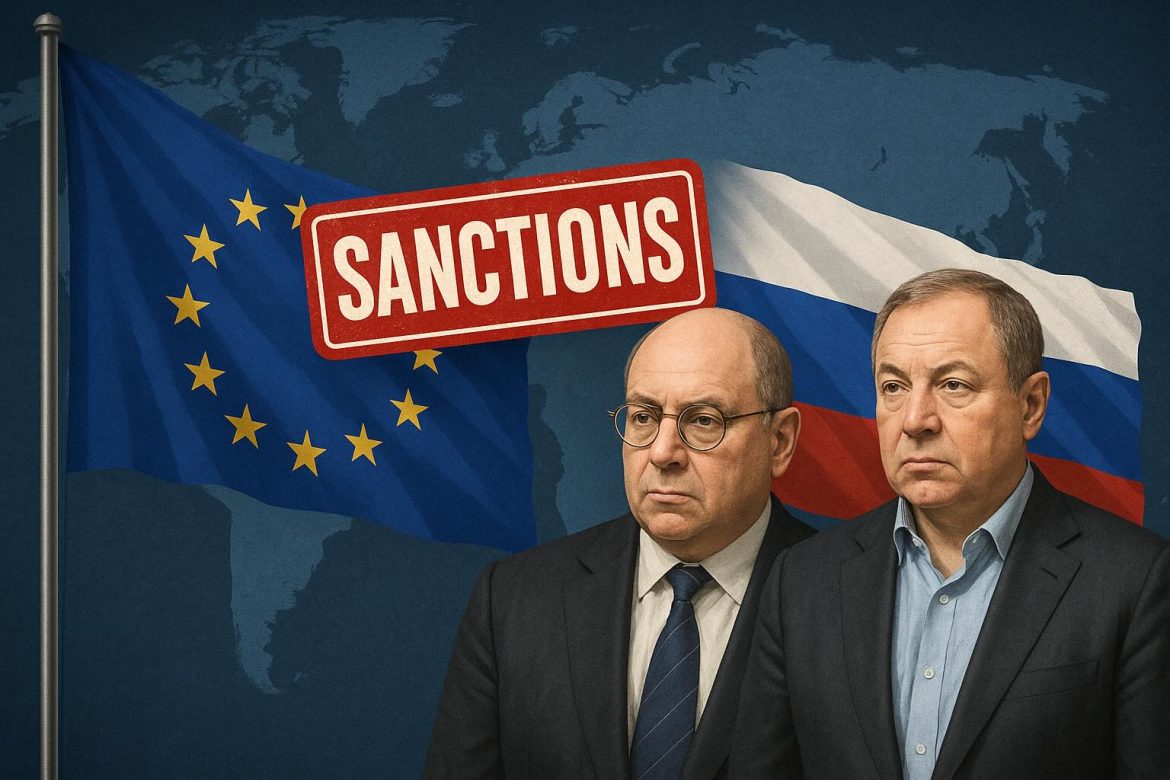The European Union has revised its sanctions policy to prevent Russian oligarchs from circumventing restrictions by claiming to have divested from targeted businesses or assets.
The update, adopted by the EU Council on 13 May 2025, tightens the conditions under which individuals may be removed from sanctions lists and closes what had become a frequently exploited legal loophole.
The decision follows a growing number of legal challenges brought before the Court of Justice of the European Union, where sanctioned individuals argued that the restrictive measures were unjustified. In several cases, claimants asserted that they had relinquished control of key holdings after Russia’s full-scale invasion of Ukraine began on 24 February 2022.
Under the revised legal framework, the EU will no longer accept such claims as credible without corroborating documentation. To be removed from a sanctions list, individuals must now provide “sufficient, timely, and reliable” evidence that they no longer meet the criteria underpinning the sanctions. Claims of asset sales or business withdrawals will not be accepted without verifiable proof.
In the absence of convincing information regarding the authenticity of such transactions, EU authorities may also extend sanctions to third parties—including both individuals and legal entities—who facilitated or participated in the transfer of assets. This includes cases where the transaction appears to be structured to conceal continued ties between the sanctioned party and the assets in question.
The Council decision acknowledges that Russian state authorities limit access to corporate registries and may insert false or misleading information into official databases. The preamble further notes that “relationships of mutual benefit and support” persist between the Russian state and leading figures in the country’s business sector, suggesting a deliberate effort to undermine sanctions enforcement.
Gleb Boyko, a lawyer with Moscow-based NSP, said the changes increase the legal exposure of any buyer acquiring assets from sanctioned individuals. If such a transaction cannot be proven genuine and entirely independent of the previous owner, the buyer risks being added to the sanctions list.
Yuriy Shumilov, founder of the Brussels-based consultancy YS Advisors, described the move as an effective tightening of the EU’s legal posture. According to Shumilov, previous gaps in enforcement had enabled some Russian businessmen to obtain partial or full relief from sanctions in court, a vulnerability the new rules seek to eliminate.
Two of the most prominent figures to contest sanctions are Mikhail Fridman and Petr Aven, co-founders of Alfa Group. In 2024, the EU General Court partially upheld their legal challenge, annulling some sanctions due to insufficient evidence from the EU regarding their direct involvement in undermining Ukraine’s sovereignty. Nonetheless, other restrictions remain in effect, as the EU continues to classify them as “leading businessmen involved in sectors of the economy that provide substantial revenue to the Russian government.”
In late 2024, Fridman and Aven transferred their shares in Alfa Bank and an affiliated insurance firm to long-time business associate Andrei Kosogov. Kosogov is not subject to EU sanctions. The transaction appeared aimed at reinforcing their legal argument that they no longer held influence over entities contributing to Russia’s war effort. Under the updated EU criteria, such asset transfers will require demonstrable evidence of severed control and independence from sanctioned parties.
The revised rules are intended to reinforce the integrity of the EU’s sanctions regime by curbing efforts to disguise continued beneficial ownership through proxies. The Council’s action reflects increasing concern in Brussels that enforcement is being actively undermined by complex ownership structures, limited transparency in Russian corporate records, and legal manoeuvring in European courts.
The new approach is likely to discourage attempts to circumvent sanctions through internal restructuring or nominal asset transfers. By placing the burden of proof squarely on sanctioned individuals and extending risk to those who transact with them, the EU aims to strengthen the credibility and impact of its restrictive measures.
The updated legal criteria are expected to influence forthcoming court cases and guide Member States in their implementation and enforcement of EU sanctions. The move also signals the EU’s determination to maintain pressure on Russia’s financial elite, who are widely viewed in Brussels as supporting or benefiting from the Kremlin’s ongoing war against Ukraine.
Read also:
EU Commission Confirms Agreement on 17th Sanctions Package Targeting Russian Shadow Fleet


